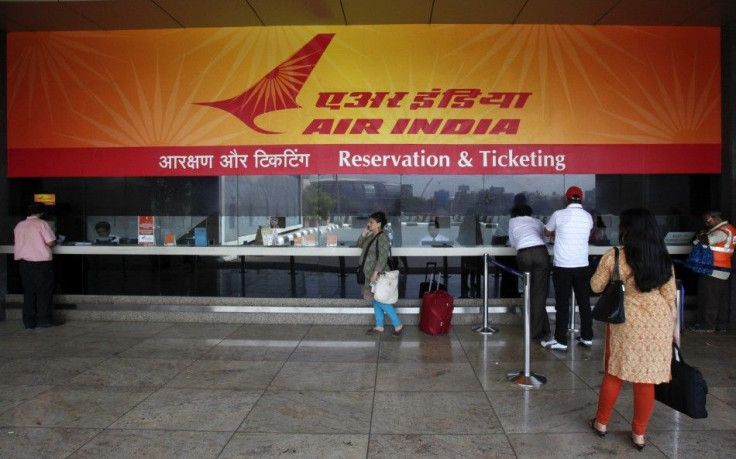Air India Pilot Strike Angers Government As Flight Cancellations Continue

A conflict between state-owned Air India and the Indian Pilots' Guild (IPG) has resulted in pilot strikes, canceled flights and a nascent Supreme Court battle. This latest row endangers the economic sustainability of the already beleaguered state-owned airline.
An IPG-led movement led to waves of pilots calling in sick to work beginning last weekend. Their grievances against Air India go back several years.
The demise of the airline started as the old professional leadership who had built it up started fading away and was replaced by politicized recruitments and a leadership that had no commitment or stake in the airline, their only commitment being the bidding of their political bosses and personal gain, said Ram Jethmalani, a high-profile Indian attorney, in a letter on the IPG's official website.
The fracas began in earnest in 2005, when Air India ordered several Boeing Dreamliners. The fuel-efficient, technologically advanced vessels are capable of carrying up to 250 passengers, and Air India officials hoped that the new planes would help to modernize their fleet.
But liberalized air travel policies beginning in 2004 had increased competition both domestically and internationally, and Air India was ill-prepared to deal with those developments. Pilots and other airline staffers were hit hard by the resulting budget squeeze, and many were incensed that Air India had spent billions of rupees on new aircraft.
Management decided in 2005 to embark upon some startling profligacy and bizarre administrative decisions that firmly placed the airline in a coffin, explained Jethmalani.
The new fleet acquisitions, as well as a hasty merger between Air India and Indian Airlines in 2007, led to what he calls operational breakdown.
To add insult to injury, Boeing delayed its Dreamliner delivery for years; the first of these jets is finally expected to arrive early this summer. But even this will be a cause for tension, as pilots who worked for Air India before the merger argue that they should be the first to receive training to operate the long-awaited aircraft.
In April of this year, the Indian government approved a bailout plan to restructure Air India and return it to profitability by 2018. This would cost more than 300 billion rupees ($5.6 billion) over the course of eight years, including cash payouts, debt repayment to financial institutions, loans and the purchase of several new jets.
But if pilots continue to strike and the airline continues to suffer, that bailout is in jeopardy.
Pilots need to understand that if Air India does not meet the performance yardsticks set in the plan, that money will not reach them. It's not a one-time deal, said civil aviation minister Ajit Singh to Reuters on Thursday.
But IPG is equally adamant. As union president Jitendra Awhad told The Hindu newspaper of India: It is a matter of life and death and career for the pilots. Talks were held by IPG with AI management which did not honor its commitments. The management is having a [casual] attitude towards our grievances.
So far, the government's response to pilot agitation has been harsh. At least 45 pilots had been sacked by Thursday, and Air India has de-recognized the IPG. The strike was even declared illegal by the Delhi High Court, and Air India has advanced a petition for criminal contempt proceedings against the IPG in the Supreme Court.
Meanwhile, travelers are suffering the consequences. The Hindu reports that more than 20 flights from Delhi and Mumbai were canceled. These include routes to international destinations including Riyadh, Shanghai, Frankfurt and Seoul. All bookings on flights to the United States, Canada and Europe until May 15 have been put on hold.
If pilots continue to agitate and the airline loses its government bailout, said Singh, private investment could be key to revitalizing the industry.
There are a lot of people trying to enter this market, he explained. Air India has lots of assets, and I am not talking about only monetary assets. They have the routes [and] they have the pilots.
© Copyright IBTimes 2025. All rights reserved.






















